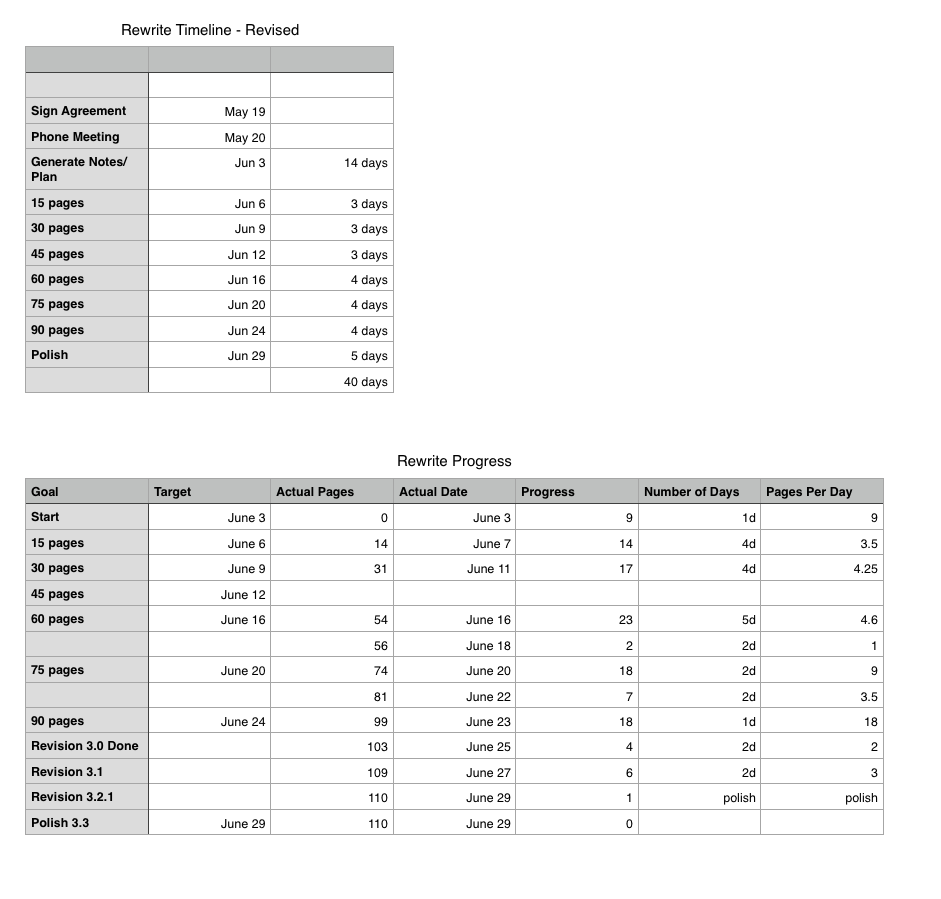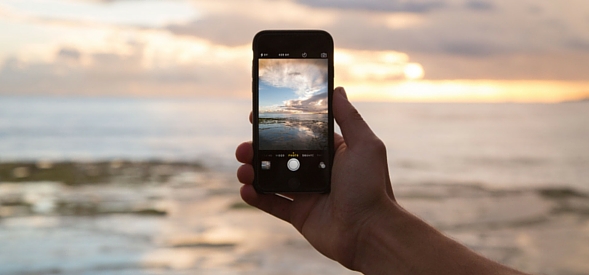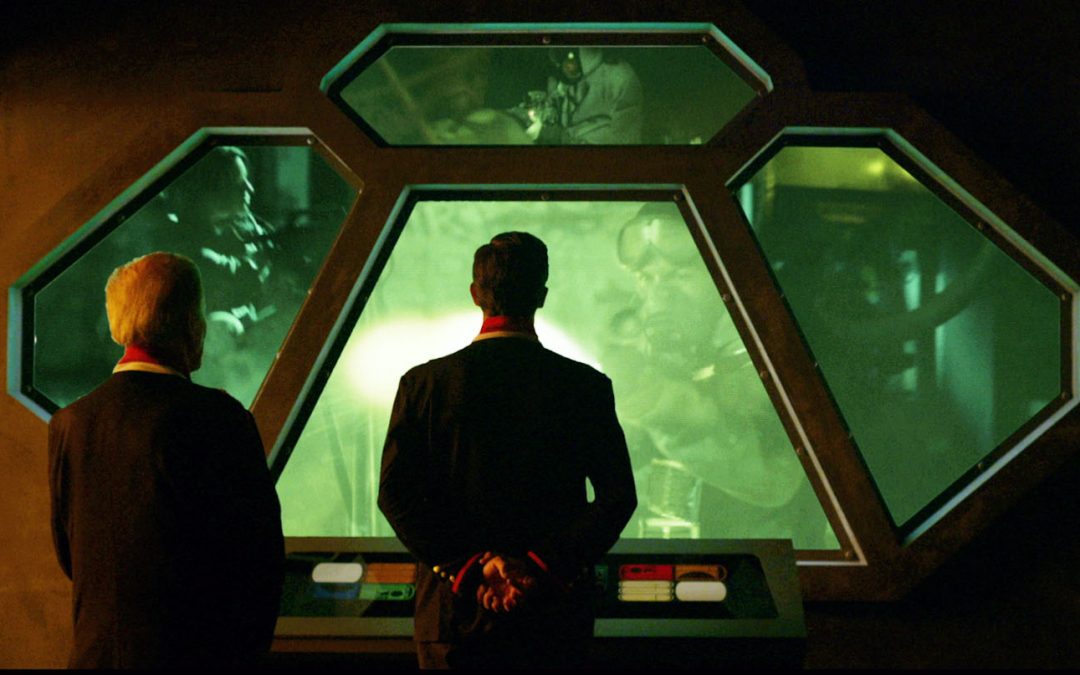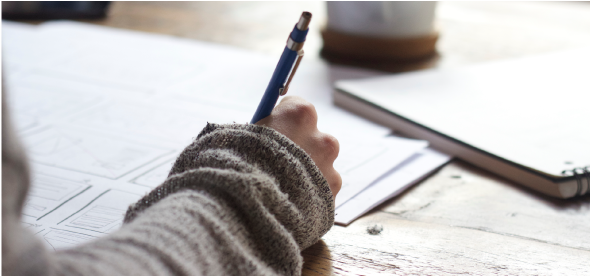
by Jenna | Aug 11, 2016 | Science Fiction, Writing Articles
I can't believe it, but I've worked on two different screenwriting assignments this year, all while taking care of my little toddler, who just turned two in May. It hasn't been exactly easy, but it's been incredibly inspiring. There's nothing quite like working on a screenplay with a deadline to shift one's motivation into high gear. ;)
I recently shared that I'd overhauled my character profile template in the course of working on this latest assignment. Now I want to share some of the other things I learned through the process of working on this gig. This was a rewrite project, so it was almost like being hired as a script doctor, but since I'm also sharing writing credit for the project it's a little different than being a true script doctor, which is often uncredited work. The project is called The Seventh, and it turned out to be incredibly fun to rewrite someone else's work (not at all like rewriting my own!).
Here are six unexpected takeaways I gained from working on this project:
- Reverse-outlining pays off. Before I dove into the actual rewrite, I reverse outlined the entire script. I exported it from Final Draft into Scrivener and then into Numbers (the Mac version of Excel) so I could have a spreadsheet I could easily study all in one place. I like the Navigator in Final Draft and the outline view in Scrivener, but for this, I wanted something I could easily see in one place and control in ways that I wanted.
Once I had the scene headings from Final Draft imported into Numbers, I went through each scene and summarized what happened in a few short sentences. Then I made notes about issues I noticed as I worked through. I also numbered the scenes. The beauty of doing this work is that it highlighted story issues, pointed out plot holes, and helped me get clear on the natural story breaks and sequences, and how well they were working, or not. Since I like to work in mini-movies (approximately 15 minute sequences) it helped me to see how well the script was working with that pattern and showed me where I needed to tweak it.
What made this so fun was that it was like being a sleuth, digging in, finding what was working and what wasn't. Very satisfying!
- Backstory matters. I knew this before. But now I KNOW it. Working on someone else's project gave me more courage to dig deep into the how's and why's of everything. I couldn't write it unless I understood it. With my own projects, I've been more cavalier about understanding where everyone comes from and why they're doing what they're doing, thinking I'd figure it out along the way (and of course I learned more about these characters even as I worked with them).
But there was something about delving into all the details and leaving no stone unturned when it came to even the slightest motivation or plot hole to get our story strong and straight. This is, of course, particularly important with a complex sci-fi world such as the one in The Seventh, but as I've watched and read other stories lately it's gotten crystal clear -- the characters exist before they come onto the scene in our stories. They have histories. Issues. Relationships. And all those come to bear on the decisions they make and the motivations they bring to the scenes they're in.
We went through several different iterations of the backstory, and the feeling of finally getting a lock on it was thrilling, particularly because we didn't give up on it until it truly worked.
- Having a rewrite plan helps, but it's not set in stone. We went into the rewrite knowing we had a certain number of days to accomplish it (40 days). And we calculated approximately how many days I could spend rewriting each 15-page section of the script to hit our deadline. But as we went into it, we found ourselves spending more time on the backstory and world building than we'd anticipated. QUITE a bit more. Which meant that I had to compress my timeline.
The other unexpected variable was that the script got longer, due to a variety of factors. So my calculation of a number of pages per day didn't exactly match what I actually had to write. So again, I adapted.
A third monkey wrench was what one of the writers in my writing community calls a "black hole" section, where the whole thing just takes a lot longer than expected to sort out. Not all 15 page sections are created equal, after all!
- Tracking progress helps keep the ship on course. Despite the shifts in the winds of rewriting, because I carefully tracked my progress, I was able to see where I was, and where I needed to end up. In the graphic below, you can see my revision plan in the upper table, essentially starting on June 3rd. We'd intended to start much earlier, but as I mentioned, the backstory and world building work ended up taking 14 days. In the lower table, you can see the number of pages I worked on each day or block of days.
This is one of those things I geek out about -- watching my progress build, seeing how I'm staying on track (or not) helps make it exciting and fun and keeps me from getting lost in the "I'll never make it" doldrums my inner critic likes to dish out. And I could easily tell my writing partner how close I was to being on schedule at any given point.

- Having a great writing partner is huge. I was thrilled to work with my co-writer on the rewrite, the original author of this script. I did all the rewriting work, but we worked closely together throughout the process. It was a huge source of fun and delight for me to have someone to bounce ideas off, run problems by, and generally dig deep into the story together. My co-writer was particularly good at keeping his ego out of the way and working hard with me on making sure the story improved. It was inspiring and impressive. Plus it turns out it's just wicked fun to help make someone else's writing that much better.
- Screenwriting every day for 40 days was empowering. Since having my second kiddo, I've been interspersing stretches of screenwriting with other writing (blogging, course writing, product writing, etc.) and while that's been easier for me to manage, it's been a little disorienting. I loved the feeling of ending each day feeling like I'd really USED my brain for my truest deepest calling -- writing fiction. That expression "die empty" felt very apropos. Each evening, as I went to bed, I felt complete in way I don't feel when I'm not writing fiction. It was amazing.
Interestingly, when I was first offered this writing gig, I turned it down, based on my level of busyness as a mom, as a writer of my own projects, and as an entrepreneur. But in the end, it was a delightful experience all around and one I'm truly grateful to have been asked to be involved in. I can't wait to see what happens with The Seventh as it continues to evolve!

by Jenna | Nov 25, 2015 | Reflections, Science Fiction
I wrote recently getting a handle on online distractions that keep you from writing, and prior to that, about cutting back on the online distractions that were cluttering my head.
I've been highly interested in this topic because I could feel my life-energy being sapped by these distractions and it's been really bothering me, despite the many changes I've already made. I do a good job of protecting my actual writing time from email and other online stuff, but the rest of my life? Not so much.
And it was mostly because of my phone. My computer use feels manageable. My TV consumption is minimal (though I have been watching lots of Prison Break and Breakout Kings as I'm prepping a sci-fi prison movie right now!). Having said that, I like being able to use my phone to read ebooks in the dark late at night without waking the baby (who sleeps in the same room) and being able to write on it when I want to.
But I don't like feeling like I can't be without it. Ever. YUCK.
(And honestly, the picture I've chosen to accompany this post keeps freaking me out -- it seems entirely emblematic of how so many of us are viewing our world through the filter of a device... constantly.)
My email trap
It was email that was really my last "hook" — I rationalized that as a business owner, I need to stay on top of things and make sure nothing was falling through the cracks. But that notion kept me constantly checking to see if I had any new messages.
And not only did I feel guilty for oh so frequently "checking" my phone when I was around my kids, I didn't like the way my brain felt always cluttered by all the checking, even after I'd taken Facebook off my phone, turned off almost all the notifications in the lock screen and more. It was like being tied into other people's energy and needs was keeping me on edge, in a hyper vigilant state of awareness and constant readiness. Again, YUCK.
Finding the courage and support to make a change
So I decided to participate in a "Look Up" two week online use "detox" program and see what shifts I could make.
We worked through a four-step process of first defining what we want, noticing what impulses were driving the behavior to check in online, accepting that those feelings and impulses (often discomfort) would not necessarily change but that we could learn new ways to deal with them, and finally choosing what we wanted instead. Then, every day, we answered simple journal prompts every morning to set our intentions for the day about our online use and how we wanted our days to go, and every evening, about how it went and what we learned.
I deleted Gmail from my phone
Initially I found myself sort of skirting the edges of changing my phone use, testing the water, seeing how it felt just to consider cutting back. (Which just shows how powerful an addiction it can be!)
Even before the program started, I installed the app called "Moment" so I could see how much time I was actually spending on my phone, and how many times I was picking it up. So in some ways it was good that I wasn't changing anything initially, but just observing. And it was kind of scary. There was one day, prior to the program, where I picked up my phone FORTY-NINE times. 49!! It's embarrassing even to put that in print.
On about Day 3 of the 14-day program I decided to take Gmail off my phone entirely. For good measure, I took off Chrome too, so my second-biggest, "let me just look that up real quick" excuse was gone too. I still have Safari there but since it wasn't my go-to program it just doesn't have the same attraction. While I was at it, I turned off every other kind of lock screen, pop up, and banner notification I could find on my phone (except iMessage and Reminders, which I do use) and on my computer.
It was so worth it.
I felt sort of jittery for about 24 to 48 hours, still on that automatic "must-check-now" auto-alert. It was mildly frightening to feel so much like Pavlov's Dog. Again, YUCK.
What changed for me
After that, everything got a lot more calm.
I found myself feeling much more present in my life and to my family.
My brain felt quieter, calmer, more alert.
I had more energy.
I started reading REAL BOOKS and putting my hands on REAL THINGS like baking food, drawing, collaging. I noticed that when I felt the urge to "check" I could make tea, or snuggle with my boys, or GO OUTSIDE and look up at the beautiful amazing sky that helps make life on this planet possible.
I also found that I could still use my devices for certain things: Kindle, Netflix, the timer, the calculator, iMessages, writing, and other apps I love and find incredibly useful without it taking over my time and energy. My phone became a tool again, instead of a constant companion or savior or whatever it was actually doing for me. It's been interesting to walk the line of finding what online use works for me and what doesn't, at least for right now.
I found myself being crystal clear about times when I absolutely did NOT want to be consuming any online stuff at all and have had a few spans of totally unplugged time (something I used to do weekly) and LOVED it.
It's started to feel kind of gross to be looking at my phone.
So I just don't do it much anymore. It mostly stays in my office, on the charger, except when I need it when I'm out and want it for emergency phone calls, or if I need it for another purpose, like the calculator or timer. Again, it's gone back to being a tool, and I like that.
I also found that the days have gotten So Much Longer! All those "little" checks and moments of time that were getting sucked into online use are suddenly mine again. My mind is clearer. My intentions are clearer each day. I feel more focused.
How my writing has changed
And as far as my writing goes, I have not noticed a huge change in my writing time, but I'm not surprised by that, since I've already been writing regularly and protecting my writing time well.
What I have noticed is that I feel readier to write when I sit down to do it. Now what swirls around in my brain when I'm out in the world is what I'm going to be writing about next, whether it's a blog post, my current script, or the next big project that's coming down the pipeline. It might sound like a small shift, but it's huge. It feels like I've reclaimed my own territory again. And it's such a relief.







